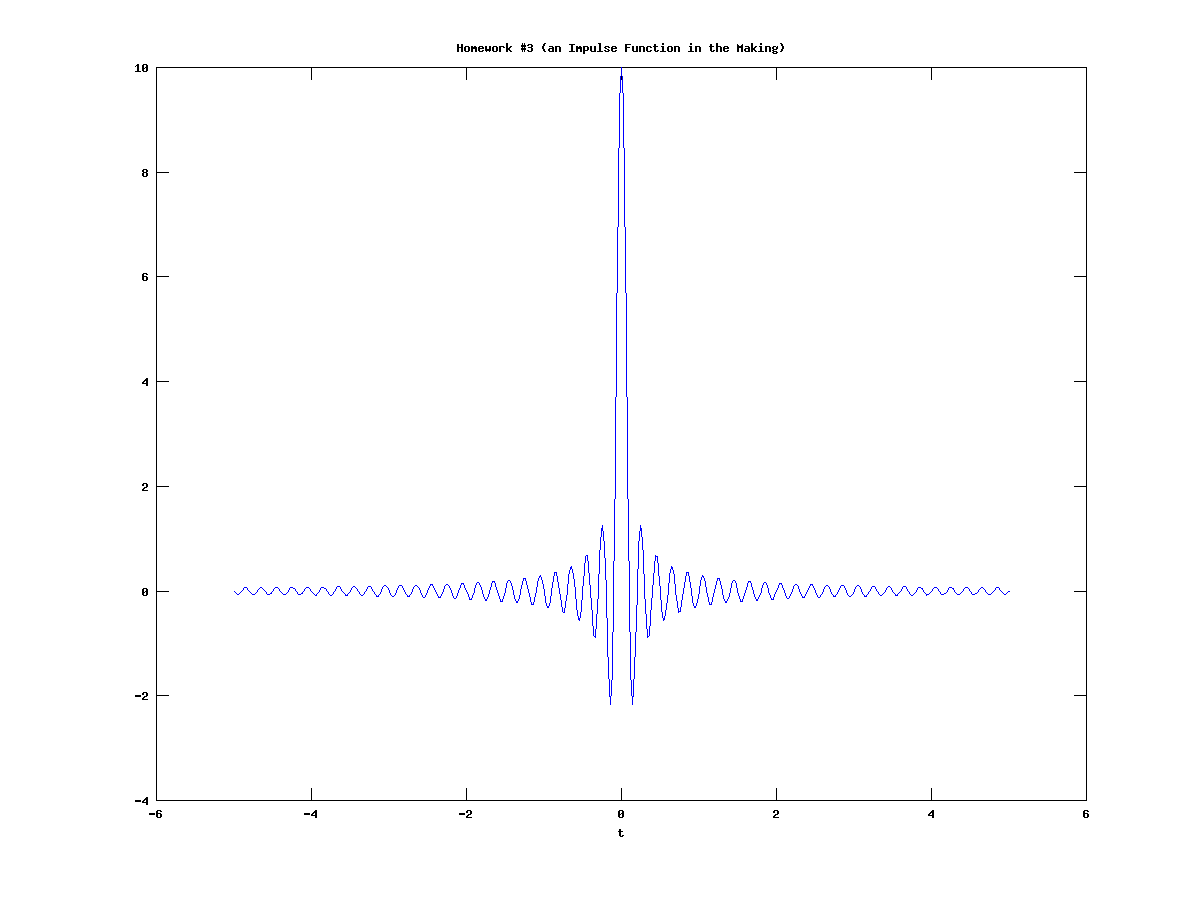HW 3
Doing this assignment taught many new lessons, in both sampling and Octave. An infinite integral in Octave would be impractical. As a result, I did the following:
- I made a vector "x" from -5 to 5 with points spaced every .02 in between. I originally made the vector from -10 to 10 with an even smaller spacing (the Nyquist theorem requires that samples must be taken at at least twice the frequency), but the integral took too long.
- I made a vector "y" equal to "x".
- I used the meshgrid function in Octave to make my vectors square matrices xx and yy (more info here)
- I then integrated and plotted the result.
As you can see by the graph below, it is indeed very similar to an impulse function. To confirm, I integrated under the plot and found the area to be 0.99621, which is very close to the expected value of 1.
